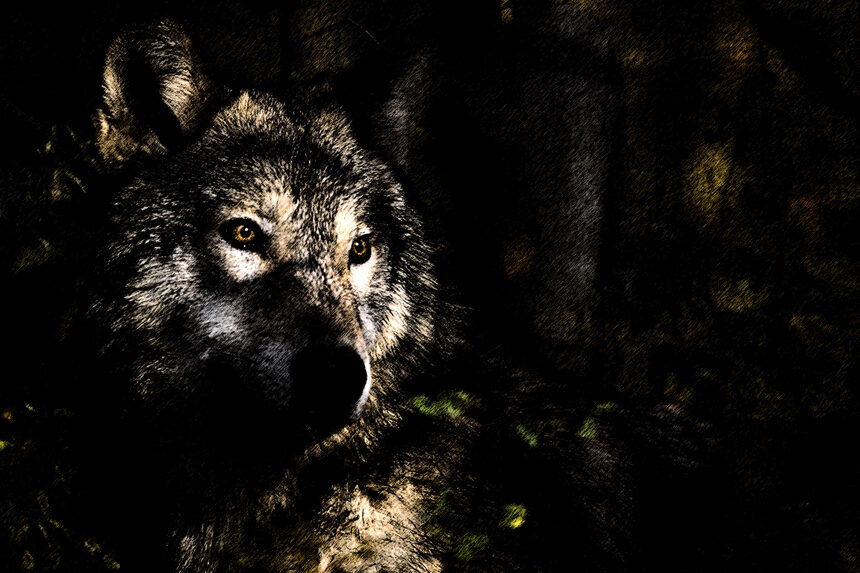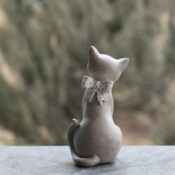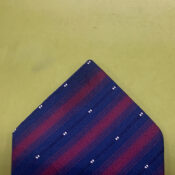Up on Lookout Mountain, Melissa toted a copper pot half-filled with exactly 16 ounces of distilled water mixed with one evenly leveled teaspoon of her mother’s ashes, being mostly careful (as instructed) not to spill a single drop. In her apron pocket, she carried a recipe card scrawled in her great-grandmother’s shaky script, a silver teaspoon, a crunched-up envelope, a book of matches, and a mortar stone, which (if she followed all directions) she would have to use to grind bone to dust, twig to powder, tears to salt.
Her mother, Eliza (as Melissa most often called her), had given her the ingredient list and directions for preparing the Twixt Stew that, among other things, included: 3 inches of the molted skin of a black snake, 1 rib bone from a small bird (a warbler would be best but only “if you could”), 1 teaspoon of tears (or “sweat if tears would not come — blood could also do — the humanity of the salt was more important than its vessel”), a pinch of coniferous bark (“not a whole piece but a scale or two”), and the crescent tip of one of her mother’s thumbnails, not painted.
Family lore spelled out that she and her female relatives were not intended to rely on men, so of her brother very little was asked. It would be okay if he could find some time to mourn their tremendous loss or roll his scruffy fingers along their mother’s worn string of prayer beads with the intent of wishing well or, because he was the only son, when the time came (again, “if he could”), help his only sister with the heavy things, which meant furniture and boxes rather than burdens or bothers and certainly not journeys into the forest depths.
Because Eliza knew what was coming, she had handled the fingernail ingredient for her daughter by securing the brittle crescent in a small sheer jewelry bag (originally intended for her moonstone earrings which were now nowhere to be found) and enclosing it in a lavender-colored envelope. She had set it on the bedside table, under her antique lamp with a pink floral globe that was also now Melissa’s.
It was just another thing Melissa didn’t need. Another thing she didn’t know what to do with.
Melissa planned to follow through with her stew-laden promise only because her mother made her swear to it upon the family book. The in-between cure was meant to help Eliza move from death to peace and signaled a forgiveness on Melissa’s part that she did not yet own and had not been able to unveil.
In the haunting legacy of the aunts, cousins, sisters, mothers, and grandmothers before her, Melissa was expected to light a long match, eat the stew while the match burned, and then cry until she could cry no more, releasing her mother of all earthly obligations and offenses. The only latitude she’d been given was permission to add one new ingredient to the family’s recipe. The stew must be made by the one who knew the deceased the best, and understood well all the good that needed celebrating and the horrible that needed forgiving.
When friends called to offer their sympathies upon her mother’s passing, Melissa could not put words to how she felt. Words like relief and tranquility would make her out to be a monster. So, she shared how sad she was with her caring friends. But alone at night she could not get tears to fall. The truth was that her mother had been the monster, with her verbal abuse and accusations. Forever blaming Melissa for this thing or that thing. In fact, there had been a lifelong string of incidents that painted Melissa in an unflattering light and left her explaining herself to people who really didn’t matter to her one way or another.
Just a few days before she passed, Eliza had been in the backyard shooting at a squirrel, trying to hit it in the eye and, according to her neighbor, missing wildly. When the neighbor crossed the yard to complain, Eliza aimed the gun at him. Then she told him that Melissa had been feeding the tree rats to make her crazy. She told him that Melissa knew that they skittered across the roof at midnight and woke Eliza just when she needed sleep the most. Apparently, she had more than once referred to Melissa as “that child,” a painful phrase from Melissa’s younger years.
The neighbor confronted Melissa when she was bringing in groceries for her mother. He had stopped in the driveway to say hello and was friendly enough at first. But then he saw the bag of peanuts Melissa was carrying, the bag her mother had asked her to pick up — extra-large this time, she had told Melissa.
“Hmmm, so it is true,” he said and shook his head.
“What is,” Melissa asked.
He admonished her for being cruel to the elderly, especially a parent. “We don’t deserve that,” he said. He reminded her that her mother was old, and not completely up to the challenge of pranks. “You know her health is failing,” he added. He begged her to be a bit better behaved: “like her brother,” and, “for everyone’s sake.” He told her the story her mother shared and added that she’d said some other things. Things he didn’t care to repeat, “being in the presence of a lady, and all.”
Melissa promised it wouldn’t happen again. Before the rain came in that afternoon, she pulled down the squirrel house, toppled the bird fountain, and threw the nuts in the trash.
Melissa had made her vow to exercise the in-between cure over the embossed leather cover of the family book with one hand pressed between the middle pages, which had been signed by her great-great-great-great-grandmother (or so Eliza had once claimed). Even though she had crossed two fingers behind her back like a little girl, Melissa had said, out loud, that she would help Eliza move to wherever it was that the soul met the spirit when the human body stopped working. Her mother was in need, Eliza herself and Eliza alone swore, of an ending far more potent than an earthly death could offer. It was not in ground but among the stars that her mother claimed to belong, shrouded in the pinprick lights of a midnight sky rather than covered in the dark, dense dirt of an Alabama mountainside.
Consequences had been a word that Eliza had not-so-lightly tossed about.
If Melissa didn’t eat the stew, her mother could linger, only god (the one her mother didn’t believe in) knew where. As her mother liked to remind her, spirits stuck in perpetuity had a lot of free time to stir up trouble for those who hurt or, worse, disappointed them — words clearly spoken by a woman convinced she’d die before her children.
And Melissa knew it to be true that consequences were as tangible as the slippery leaves on the forest floor. For there had been a second cousin who once promised Melissa’s aunt help of a stew-based nature. That cousin’s name was no longer spoken because she reneged on her word, only to be found under a fallen tree a few short weeks after her mother’s death. The fact that the funeral director confirmed the mother’s fingernails had still been long and painted as black as panther fur when he cremated her confirmed the vengeance well enough.
Melissa didn’t believe in spells, but she feared curses, especially the ones rolling off Eliza’s tongue, for she had seen the green spit and vile that spilled out at Ezmeralda, her childhood cat, when it scratched her mother’s embroidered sofa “for the last time.”
In the light of the mountainside’s fading dusk, the snakeskin was easy enough to find hanging on the low-curved branches of a droopy pine. How fortuitous it was for the skin to have come from the head, with its hollow eyes (how inspirational that creature was — one that would blind itself to start anew), mouth split wide where the body had slithered through (and mute itself), and its opaque diamond pattern still present (shimmering all the while). Its onion-skin peelings crumbled easily between her fingers and fell into the pot like it belonged just there and nowhere else.
The generous pine tree also offered a pinch of scaly bark, easily scraped off with Melissa’s fingertip except one sharp piece that lodged itself under the nail on her pointer finger. A spot of blood spilled out. The throbbing began immediately as blood pooled, then spread like liquid pressed beneath a microscope slide. She intermittently shook her fingers and forced them into a fist, finding little relief in either action. Remembering the need for tears or blood, she pressed on her nailbed until a bulb formed. She placed her finger over the pot but, just before the bubble dropped, it popped and blood trailed down the side of her finger.
Melissa sighed, her shoulders heavy.
When she looked up, she saw a small, weathered nest on a nearby branch. The snake had been after something, hopefully a baby bird or an injured mother had gone unnoticed. She pulled herself up on the lower branches and peered over the straw edges. Just after she caught her footing, she felt her head pull back as if she had snagged her hair on a branch. She winced. When she reached to push it away, she realized nothing was there and lost her balance.
She landed on her bottom, nearly tipping over the copper pot. Out of the corner of her eye, she saw a crow sitting on a higher branch with a full patch of her hair in its mouth. She was sure she was only imagining the delight in its eyes, the smile across its beak, but they seemed entirely real.
A few tears came but she didn’t try to catch them. They weren’t cried on her mother’s behalf anyhow — a fact she had forgotten mattered until that moment.
Thin clouds crept across the darkening sky. Refusing to show themselves, the stars slid in behind the soft white puffs in the same way her mother hid herself — a batch of incapability toiled in a trifecta of selfishness, indifference, and indulgence. Only the moon peeked through the cataract haze. Forgiving and warm.
A spot of yellow on the ground surprised her. The solitary, vibrant dandelion, surrounded as it was by the forest floor’s dankness, thrived where it didn’t belong. Moss and dead leaves, sure. But the fresh flower reminded her of salad, summer dresses, and worst of all: life.
It wasn’t fair the slight grin it brought to her face. She should not have been distracted from her sadness with even a dash of joy. Having seen that happiness could too easily rot, she’d resisted reminders of good in the world well enough. Moreover though, she longed for permission to be angry, raging even, and for an avenue to express it. Where, she wondered, were the black roses with claw-like thorns and stems so thick they couldn’t possibly be broken by a human hand alone? Because, she’d lost a mother who demanded too much, neglected too much, and still furiously left behind a hurt too big, she aimed to greet the world with a pinch of spit, an ounce of backtalk, and a whole pound of goddammit.
Melissa rose to her knees and straightened her apron. The damp dirt had stained the knee patches on her denim overalls. Water lived in that space, too. Deadness became an illusion — not everything was gone. The dandelion’s curled petals felt waxy as she pressed them between her fingers. She imagined adding them to the pot — fresh and bright — it could be an innocent enough way to throw off the balance of the stew’s darker ingredients, the universe, her mother’s demands. She couldn’t bring herself to say the full of the word retaliate, but she let reckoning roll off her tongue as if she were conjuring up a spell all her own.
She pushed her long, tangled bangs away from her face. Several feet in the distance, a small coyote walked in her direction, then stopped. It lifted its nose and smelled the air. The wetted, knotted fur around its face and neck was soil-stained. It looked skinnier than it ought to so Melissa wasn’t sure if the rumbling she heard was hunger or distress; neither one boded well. Its smoke gray eyes watched her with intention.
When the coyote squinted, so did Melissa. If her mother had taught her anything, it was never to show fear, no matter how her stomach turned. Never, ever look away.
The coyote leaned back on its haunches and lowered its shoulders, its upper lip raised on one side revealing a long yellowy tooth.
Above them, a silver cloud blanketed the moon.
“Okay, let’s play,” Melissa whispered and lowered her shoulders as well. “Simon says, what’s next?”
The coyote stood up and stretched one of its front paws forward. Melissa slowed her breath and mirrored the motions.
Her hand landed on a pine cone, its scales soft and moist. She picked it up and rolled it toward the coyote, being careful not to move too quickly. “Wanna play?”
Just as the coyote started to take a step backward, a loud bang rang out from the right.
It sounded like a star exploding.
The coyote fell on its side.
Melissa’s body shook.
“Oh no, oh no!” she cried out. A pinch enclosed her heart.
With her hands covering her mouth and tears flowing freely, Melissa rushed over to the coyote, now silent. She looked first at its eyes, already vacant. Then she placed her ear near its heart.
Thump, thump-thump, thunk. Then nothing.
Melissa felt something new — untethered was it, or savage? She pulled at her own hair until it hurt, only stopping when a large clump laced her fingers. The crow had taught her well. Her moans came easily, angrily, powerful in a way that would probably make her mother proud.
In the near distance, footsteps pressed down against the drying leaves, crunching with the ominous brunt of heavy feet.
She heard her nickname, “Melissa Moo.”
And then in the same husky voice, “Are you okay?”
It was her brother walking toward her with a rifle hanging from his shoulder and wearing one of the familiar red-and-black plaid flannel shirts their mother got him every year for his birthday as if his clothes were what could wear out, as if things were better replaced than mended.
She held the coyote’s face in her hands. “What happened?”
No matter how much she wanted to stand, she couldn’t.
“Mother made me promise to watch over you, so I followed you through the shadows. The poor guy looked rabid, I thought …”
“You did this?” She had never thought of him as a killer.
He nodded, his expression tender. He was proud of himself.
“But why?” she said. “She did nothing!”
“Mother wanted me …,” he said. “No, it was me. I wanted to protect you.”
“From what?” She brushed the fur on the coyote’s face.
“You don’t always accept how wild things can turn.”
With her eyes closed, she drew in a long deep breath. The damp air smelled musty, overused, and, in that moment, forgettable.
After he pulled at her elbows to help her get up, Melissa wrapped her arms around his shoulders. Against his side, the muzzle of his rifle was still hot, the smell of gunpowder thick. He himself smelled clean, like he’d just washed his shirt in a pine forest rain.
Her nostrils flared, then released. How to understand if this was a dandelion, a crow, or a coyote.
This was her brother, blood and brood, not some stranger sauntering in. Maybe it was okay to need (well, maybe want was a better word, or better even still: appreciate) another person’s help.
But had she needed that help? For the briefest of seconds in the thick of that forest, she, for the first time in a very long time (if actually ever), considered what she herself and she alone wanted.
When he started to pick up the pot, she stopped him.
“Our cousin just had bad luck, right?” she said more confident than hopeful.
“Indeed, she did,” he said.
She pulled the envelope out of her apron pocket and set it on the ground along with the recipe card and used the matches to light them. As the edges curled and browned, she handed her brother the silver spoon. She rolled her thumb along the smooth edge of the mortar stone, and then threw it up against the nearest tree trunk. It clanked and fell to the ground. Her brother followed suit with the spoon.
Using a bit of the liquid in the copper pot, she doused the remaining embers of the lavender envelope.
“You okay,” he asked.
“Nature doesn’t owe her this.” Melissa wiped salty tears from the side of her face and flicked her middle finger to the heavens. “Nor do I.”
She kissed her brother’s cheek and whispered “thank you” in his ear. With the pot in one hand and the ends of some of her hair in the other, she left him there and walked toward the place where she knew a large boulder sat near the mountain’s edge. She tugged a bit on her hair as a reminder to never, ever look away. After climbing on top of the boulder, she held the pot’s handle in one hand and placed her other hand on its bottom. She pulled it back and released it over the side of the mountain. It fell so far below her that the sound of its crash was absorbed by the leaf-carpeted ground.
A tickling on her left palm made her look down. Strands of long brown hair had interwoven themselves between her fingers. She pulled three loose and tied them together. Then she lit a match and set the ends afire. When she released them in the air, they singed and faded like a firefly.
She leaned her head back and wailed toward the stars. Her elbows tightened at her sides and her hands balled into tight fists. Like the snake’s, her molten skin peeled away, dazzling in the scant moonlight. The night now solid, the sun long gone. Her face pushed through, eyes no longer blind, mouth no longer muted. Such a shame bringing her to the brink required death, two deaths. (And, then with her own rebirth, a third.)
The feral blood of her ancestors coursed through her body and warmed her. As Melissa walked home alone, the river on that dark Alabama mountainside reflected the calmness of the moon.
Become a Saturday Evening Post member and enjoy unlimited access. Subscribe now




Comments
Thank you so much for reading it! Ellen
This is a story (at its core) of a mother’s abuse of her daughter going back to childhood, yet the daughter Melissa still wanting to honor her mother’s wishes for when her death would come. I felt she did, and the experience was ultimately cathartic, with Melissa releasing a lot of the emotional and psychological damage from the toxic relationship with her mom, Eliza. Maybe all of it? I’d like to think so, but we don’t know.
The story has its share of ‘blood and guts’ and supernatural factors going on that I’m not sure would have brought about the release if Melissa hadn’t gone through the ritual in the manner in which she did, following mom’s instructions. I like your writing style putting various things in parenthesis, which I often do myself. Thank you, Ellen.